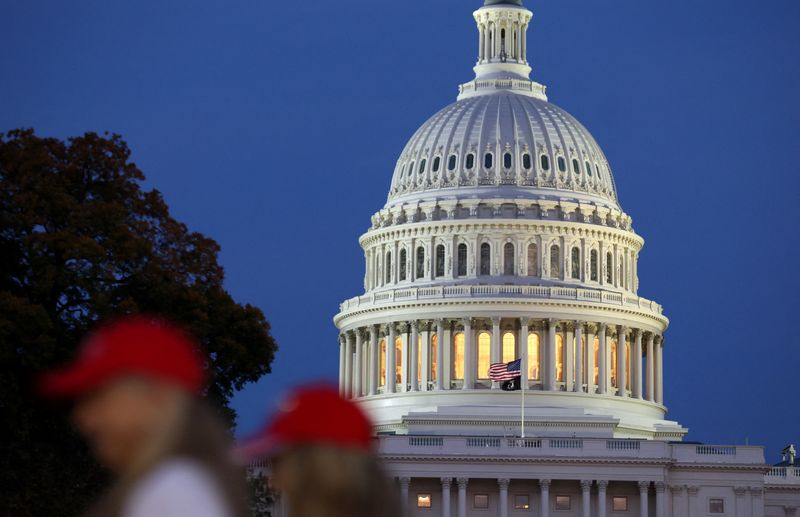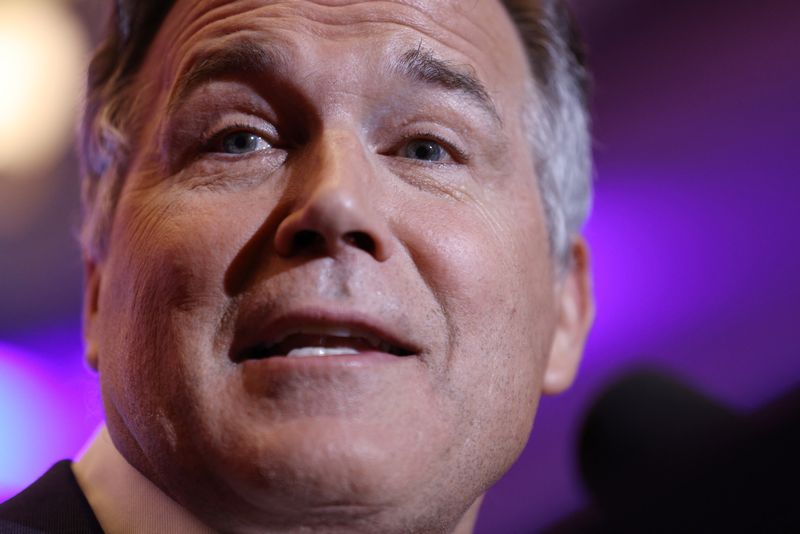By Andy Sullivan
WASHINGTON (Reuters) -Donald Trump's Republicans were projected to pick up another U.S. Senate seat on Thursday and appeared to be retaining their narrow hold on the House of Representatives, putting them on track to control both chambers of Congress next year.
Several media outlets projected that Republican Dave McCormick (NYSE:MKC) would defeat Democratic Senator Bob Casey in Pennsylvania, giving Trump's party at least 53 seats in the 100-seat chamber next year. That margin could climb as high as 55 seats if Republicans win close races in Arizona and Nevada, which remain uncalled.
In the battle for the House, Republicans were edging closer to victory after adding one seat to their 220-212 majority, though 25 races have yet to be called.
Republicans had secured at least 211 seats, seven short of a majority in the 435-seat chamber. Democrats would have to win 19 of the remaining uncalled races to take a House majority and maintain a toehold on power in Washington.
The final House result may not be known for some time, as 11 of the outstanding races are in California, which typically takes several days to count ballots.
With control of the Senate, Republicans will be in a position to confirm Trump's personnel and judicial appointments, though they will still be short of the 60 votes needed to quickly advance most legislation.

If they control the House as well, they would be able to help Trump deliver on campaign promises like cutting taxes and dramatically restricting immigration.
The other uncalled competitive Senate races are in Nevada, where incumbent Democrat Jacky Rosen led Republican challenger Sam Brown by just under 1 percentage point with 94% of the estimated vote counted, and in Arizona, where Democrat Ruben Gallego was leading Republican Kari Lake by 1.7 percentage points with 74% of the estimated vote counted.
